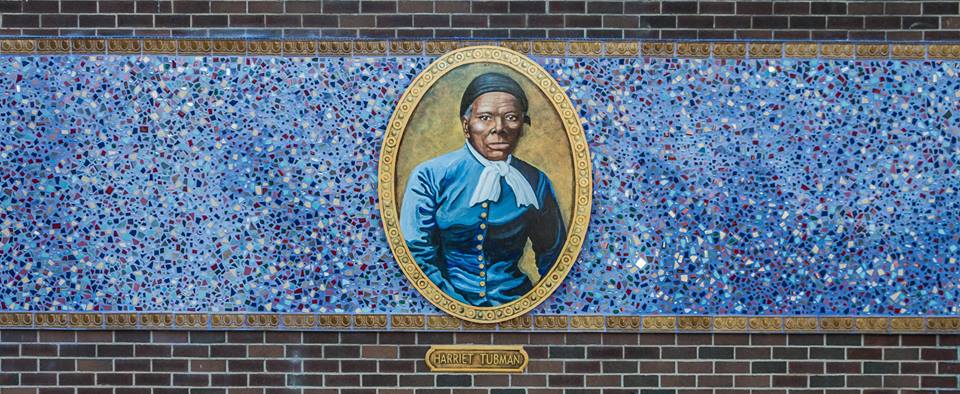
October 9, 2023
Why Harriet Tubman Continued Her Legacy In New York, The Birthplace Of The Underground Railroad
Much is known about Harriet Tubman as a renowned abolitionist, humanitarian, and Civil War hero. But we too often overlook her continued legacy and final years in Upstate New York.
Auburn, New York, holds rich heirlooms of Tubman’s history and final years after securing freedom for herself and many others. It also has strong ties to the formation of the Underground Railroad, which could highlight why Tubman decided to make the city her final home.
While many people know Harriet Tubman as a conductor of the Underground Railroad, few know the rest of her story and how Auburn served as a birthplace for the network of safe spaces. Tubman spent her 50+ years post-slavery as an abolitionist, activist, public speaker, mentor, philanthropist, and a successful entrepreneur whose senior living facility became a National Historic Landmark in 1974.

Tubman’s final years were anything but easy. But remain a testament to how far she had come after successfully escaping enslavement and leading others toward freedom. After serving as a “Moses” of the Underground Railroad and as a scout and spy during the American Civil War, Tubman lived alongside her family, friends, and colleagues in the place where the soul of equal rights was born and still lives today.
A visit to Auburn in Cayuga County will allow you the honor of tracing Harriet Tubman’s footsteps and experiencing her history—and her legacy—in a whole new way. We toured the town in honor of National Underground Railroad Month and were able to walk in her shoes across the streets and the floors of the historical landmarks that welcomed her life as a free woman.
An in-depth tour and history lesson with GLOW Tours walked us through Tubman’s home that holds the bricks she helped her bricklayer husband, Nelson Davis, lay as the foundation for the property that still stands today. We toured her gravesite and that of her husband, a former Army man who traveled down to Galveston, Texas, in 1865 to let the formerly enslaved know they were free.

Yes, Harriet Tubman’s husband was among the troops who went to Texas on June 19, 1865, and birthed the national holiday we all now know as Juneteenth. GLOW Tours founder Ted Freeman brought us to churches and houses such as the Seward House Museum, where enslaved people were safely housed during their freedom journey.
He also shared valuable family history about his great-great-grandparents, Harry and Kate Freeman, who are widely believed to be founders of the “New Guinea: Negro Settlement,” a safe haven for free Blacks and the birthplace of the Underground Railroad, as noted by the Auburn Citizen.
With a history of liberation for free Blacks, Auburn’s early efforts toward inclusion made it the perfect place for Tubman and many other formerly enslaved to call home. Now, visitors can take the self-guided Underground Railroad Tour and see churches and houses such as the Seward House Museum, where enslaved people were safely housed during their freedom journey.

You can learn more about Tubman’s philanthropic work, tour her property, and see the apple orchards she planted at The Harriet Tubman National Historical Park. Then, pay your respects to her life at her final resting place in Fort Hill Cemetery.

Harriet Tubman’s legacy lives on in historical sites, residents, and the community of Auburn. The locals are friendly, and the food is fresh off the farm, making for delicious meals at every turn.
Plan a visit and allow yourself to experience the untold story of Harriet Tubman and her bravery, along with the resilience of our ancestors who were helping lay the foundation for Tubman and other freedom seekers at a time when they couldn’t do the same throughout most of America.
Auburn’s four-part podcast series “Walk in Her Footsteps: Harriet Tubman’s Life in Auburn, NY” serves as a precursor to what a visit will bring. Hosted by Tourism Ambassador Beonca Louis, in conjunction with academics, historians, and descendants, the episodes share stories and interviews that explore Tubman’s life work and how it has impacted American history and the residents of her chosen hometown.
RELATED CONTENT: Possible Tunnel Connected To The Underground Railroad Discovered Under Pennsylvania Art Gallery